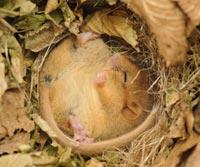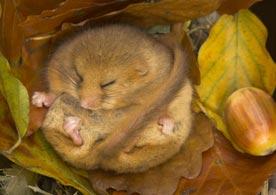
6 minute read
Field And Stream
Support wildlife and learn for pennies
By Miranda Robertson Dorset’s wildlife is also at newsdesk@blackmorevale.net great risk from the variety of wildlife. Despite the year’s challenges, conservation work continued throughout to maintain nature reserves that many of Dorset’s best-loved species call home. However, much of the summer and autumn was also spent addressing vandalism, heath fires and fly-tipping on nature reserves. While work to tackle these problems has begun, rehabilitation of these spaces takes time and there is still plenty to do. Beyond these threats, devastating effects of climate Wildlife enthusiasts can change, the ecological crisis, brush up on their nature and the pandemic, which has knowledge and help charity prevented volunteer work for about a ha’penny a day from taking place for most of this year. 2020. Dorset Wildlife Trust is Support care officer Nancy offering half price Taylor said: “In 2021 the membership this month, importance of nature in our which starts from just £1.75 lives has never been clearer. a month for a year (direct People have reconnected debit only). with the natural world on Throughout the pandemic, their doorstep, appreciating Dorset Wildlife Trust’s the positive impact of nature nature reserves have on their wellbeing. But our wildlife is disappearing at an alarming rate. Some of our mostloved species are threatened, with 26 per cent of UK mammals in danger of disappearing altogether and hedgehogs, red squirrels, bats, turtle doves, THE BIG SLEEP: Dormouse © Terry Whittaker cuckoo, water 2020VISION voles and provided essential green all at risk. But there is hope. space for local residents to “By becoming a member, enjoy, while providing a safe you directly contribute to place for Dorset’s huge protecting the habitats of basking sharks
BREAKFAST IS READY: Hibernating dormouse © Danny Green

endangered species in Dorset. Dorset Wildlife Trust’s work to care for these places is only possible through the generosity of our members and without them we wouldn’t be able to achieve all that we do for wildlife in Dorset.” This offer is valid until the ned of January. A year’s membership starts at £1.75 a month for an individual, £2 a month for joint membership, and £2.25 a month for a family membership. Individual and joint members receive an exclusive membership magazine, Dorset Wildlife, 3 times a year, and a guide to all 42 DWT nature reserves. Family memberships include four issues of the magazine a year, as well as the individual membership benefits. To sign up go to dorsetwildlifetrust.org.uk/bec ome-member

Field & Stream So, why DO we keep sheep anyway?
THE FIELD
with Tria Stebbing
“Why have you got sheep?” Last Sunday, having just moved the sheep back to their paddock, a resident out walking stopped to watch and asked the question. I had never thought about it much before... we just have sheep – doesn’t everyone? We started our sheep journey some years ago, initially to keep the grass down in the field. We saw an advertisement in the predecessor of this very publication and went to buy a couple and came back with eight. Fast forward a few years and we are busy breeding to maintain this special breed by meeting the required standard as set by the association. Zwartbles By Alex Hennessy of Dorset Wildlife Trust On a crisp winter’s morning at Fontmell Down, long shadows sprawl across a veil of bright white frost covering the grass. The icy dusting extends to hedgerows and spent seed heads on and around this steep sloping grassland in the peaceful Blackmore Vale. The wildflowers, some very rare, that burst up from underfoot in summer are a distant dream. Despite the chill in the air, there is still plenty of wildlife at home on this beautiful nature reserve. A quiet, still dormouse hibernates through the winter months, curled up tightly underneath logs or leaves, at the base of a tree, or even just slightly under the ground where the temperature originated in the Friesland region of Holland and are a rare breed traditionally used for meat and milk. Their name simply means black with a white blaze. They were first introduced in the UK in 1986 – interestingly in 1978 there were only about 250 purebred Zwartbles left in Holland. A pedigree Zwartbles will have an uninterrupted blaze (white stripe) which is reasonably straight, it can go under the chin but not on the wool. Running from the
A woodcock - Photo: Mark Hamblin 2020VISION is more constant. Dormice are very small, measuring between 6 and 9 centimetres in length with a fluffy tail of around 6 centimetres, and are nocturnal, so even when they awake from hibernation in warmer weather, they are a very rare sight. Shy wintering woodcocks hide out in the wooded areas, superbly camouflaged by their brown mottled plumage. Some woodcocks live and breed in Britain, while others migrate from Europe and Russia for winter, seeking damp crown of the head and down to the muzzle. What began as lawn mowers quickly became a hobby that is mildly addictive. The sheep have an amazing temperament, individual personalities and are easy lambers. For those spinners out there, the fleece is medium to fine with an excellent crimp along the length of the fibre. The colours range from dense black to chocolate brown with silver fleck through. It is a sturdy wool woodlands and heathlands with earthworms and beetles for sustenance. If woodcocks are disturbed, they will fly off in a zig-zag pattern between the trees before dropping back to the ground and the safe, dense cover of the undergrowth. More commonly seen residents of Fontmell Down are ravens. These large black crows – the biggest of the crow family, Corvidae – are a striking sight, soaring above the valley with their strong, heavy bills and long, diamond-shaped tails. They can be seen throughout the year, surveying the landscape from the skies and searching for their preferred diets of mammals, carrion, birds and eggs, insects and other invertebrates. When spring and summer come around, the expanse of and can be used for blankets as well as outerwear as well as felting projects. We use ours to keep the mud down as the fleece also makes good mud mats. They have provided focus for us through lockdown, company in times of despair and joyous moments as well as occasional heartbreak. So good are they at mowing grass that we now send them out by request to other people’s paddocks to keep their grass down whilst we grow and bale our own for their winter feed. They provide entertainment for the local people in their home village and cuddles for precious grandchildren… and that is why we keep sheep. At the end of this week Alex the sheep scanner is coming out to check the ewes over to see how many lambs we are

A wild winter on Fontmell Down, home to a hidden multitude of species
expecting… watch this space! unspoilt grassland supports nine orchid species and the rare endemic early gentian. These and many other scarce wildflowers teem with butterflies, bees and other bugs. Until then, rest assured that a hidden multitude of species continues to enjoy the haven that Fontmell Down provides. Plan your visit and find out more about our other nature reserves on the Dorset Wildlife Trust website, dorsetwildlifetrust.org.uk/natur e-reserves.
EXPERIENCED, MATURE
SHOOTER AVAILABLE for pest and vermin control.
CV & references available. Reliable & trustworthy, BASC member with comprehensive
Public Liability Insurance. 07837 307553 81










